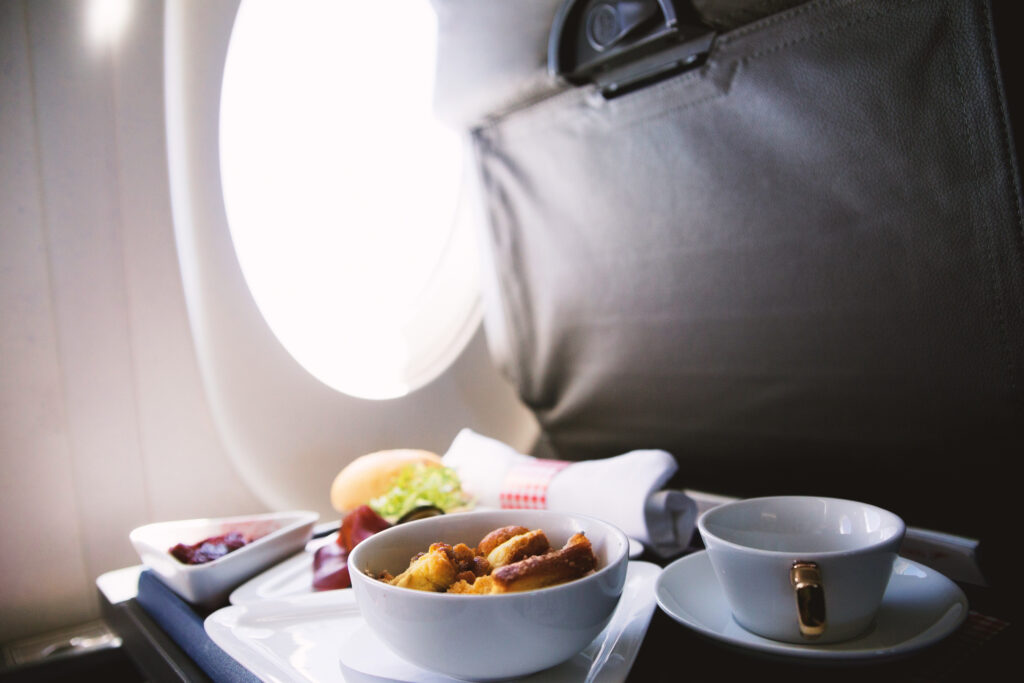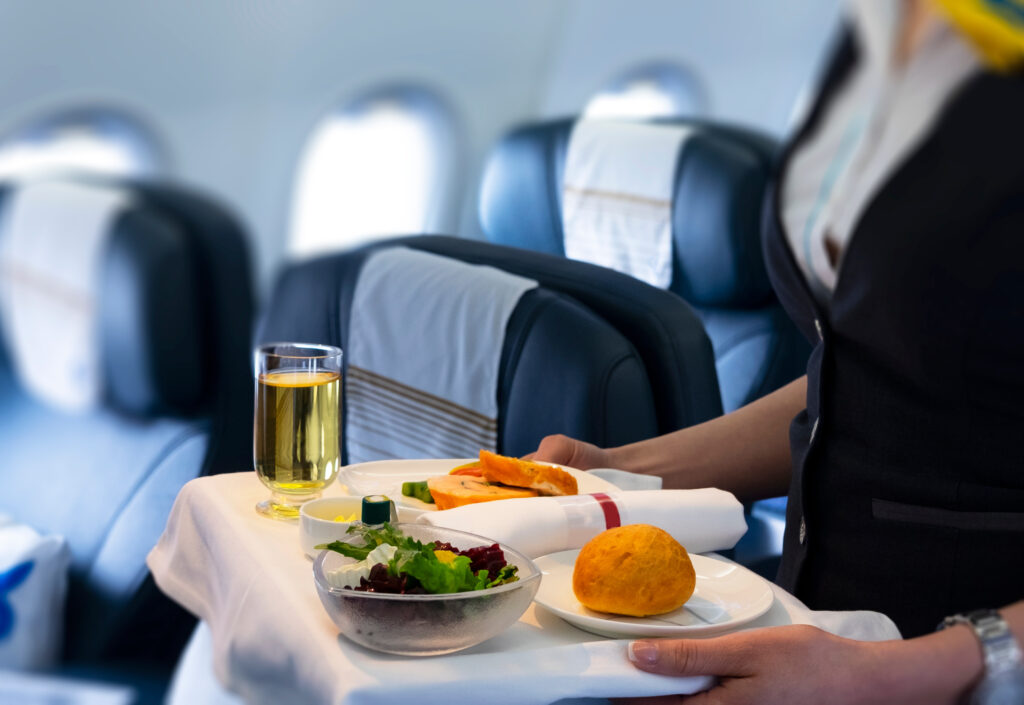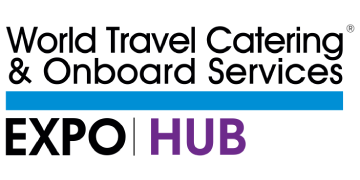
Food and nutrition have long been a hot topic in the travel industry, but as global dietary needs continue to shift, airlines are facing increasing pressure to cater to passengers with food allergies and dietary restrictions. With over 220 million people worldwide affected by food allergies and a growing number following special diets due to health conditions or personal choices, airlines have a unique opportunity to set themselves apart by prioritising inclusivity in their onboard food offerings.
Changing Airline Policies to Meet Passenger Needs
With billions of people flying each year, this translates to millions of air passengers who require special meals to avoid potentially life-threatening allergic reactions. A study conducted by the American Academy of Allergy, Asthma & Immunology (AAAAI) in 2023 found that 98% of passengers with allergies felt more anxious about their trips due to their condition. This anxiety can be mitigated by offering free-from meals, snacks, and drinks that cater to various dietary needs.
Airlines over the past few years such as Iberia, Delta, and British Airways have expanded their meal options to include gluten-free, and vegan meals. Iberia has been leading the way by incorporating top 14 allergen-free products, including some ranges from Creative Nature, into its buy-on-board menus—proving to be a popular choice. Clear allergen-free logos make it easy for customers to see what’s in each product, ensuring a more balanced and inclusive in-flight experience. Additionally, airlines are adopting stricter policies around allergen management, such as pre-boarding cleaning protocols and allergy-free buffer zones on flights.
The International Air Transport Association (IATA) has also begun discussions on standardising allergen labelling and best practices for airlines to reduce the risk of allergic reactions in-flight. These policy changes mark a significant shift towards a more inclusive flying experience.
The Business Opportunity for Airlines
Beyond meeting regulatory requirements and reducing liability, airlines that invest in allergy-friendly catering have a chance to build customer loyalty and enhance their brand reputation. In an era where online reviews and social media posts influence travel choices, airlines that fail to provide inclusive food options risk losing valuable customers. Social platforms such as TikTok make it very easy for passengers to showcase their experiences on board a flight with many turning to these platforms to make decisions on whether a flight would be suitable for them.
Airlines that take the lead in allergen-free catering can tap into a growing market of travellers who prioritise health and safety. A survey by the Food Allergy Research & Education (FARE) organisation found that 71% of passengers with food allergies actively research airline policies before booking a flight. Airlines that proactively communicate their allergy-friendly initiatives can attract a highly engaged and loyal customer base.
Inclusivity in In-Flight Dining
Providing allergy-friendly meals is just one part of the equation. Airlines must also ensure that their entire food service process—from sourcing ingredients to meal preparation and onboard handling—is designed with inclusivity in mind.

This includes:
- Partnering with allergen-free food manufacturers to offer safe options. Packaged food is important to ensure that there are no ‘may contains’ as a ‘may contain’ will defeat the object of removing the allergen.
- Inclusivity in airline catering goes beyond just offering a basic option—it means ensuring that passengers with dietary restrictions or severe allergies have access to satisfying, well-thought-out meals. Too often, those with specific dietary needs are handed nothing more than a piece of fruit, as if that’s the only solution. I’ve personally experienced being told there were no suitable meals or snacks available—just a banana or an apple. This approach needs to evolve to truly accommodate all passengers.
- Training cabin crew on food allergy protocols and enabling passengers to inform the airline easily before flying.
- Implementing clear labelling and communication strategies to help passengers make informed choices.
- As someone with allergies, I know firsthand how frustrating it is to be told there’s nothing available for you. It feels unfair, especially when you’ve paid the same fare as every other passenger. Airlines have a real opportunity to change this by ensuring there’s always an option—a thoughtful, inclusive treat that makes all passengers feel valued. Virgin Atlantic does this exceptionally well with its ‘surprise and delight’ approach for premium and business passengers, offering a selection of snacks and more inclusive choices onboard. It’s a small gesture that makes a big difference. By making these changes, airlines can create a more inclusive travel experience, allowing passengers with allergies and dietary restrictions to fly with confidence.
As the prevalence of food allergies and specific dietary requirements continues to rise globally, airlines are increasingly adapting their policies to ensure passenger safety and comfort. This shift not only addresses health concerns but also presents a significant opportunity for airlines to enhance customer satisfaction and loyalty by prioritising inclusivity in their in-flight services.
Evolving Airline Policies to Accommodate Allergies
Recognising the critical importance of catering to passengers with food allergies, several airlines have implemented specific measures:
- Delta Air Lines: Delta allows passengers with peanut allergies to pre-board in order to clean their seating area and refrains from serving peanuts or peanut products on flights where a passenger has a known allergy. They also offer non-peanut snack alternatives. Passengers are encouraged to notify the airline of their allergy via the Accessibility Service Request form or by contacting the Accessibility Services team.
- British Airways: British Airways became the first major airline to incorporate in-flight allergy announcements into their official policy. They request that passengers seated near individuals with peanut allergies refrain from consuming peanut products. Additionally, British Airways does not serve peanuts on board. Many other airlines have now come on board to incorporate announcements.
- Air Canada: Passengers with peanut or tree nut allergies can request a buffer zone, typically consisting of three rows, where other passengers are asked to avoid consuming nut products. This policy requires passengers to contact Air Canada’s Medical Assistance Desk at least 48 hours before their flight.
- JetBlue: JetBlue offers passengers the option to pre-board to clean their seating area and will create a buffer zone around the passenger with a nut allergy. They do not serve peanuts on board.
- Easy Jet: Banned all nuts being sold on board and enable you to put nut allergy on your booking prior to the flight.
These policies represent a growing trend among airlines to proactively address food allergies, thereby enhancing passenger safety and comfort.
The Opportunity Cost Inclusive In-Flight Services
Beyond the ethical imperative, accommodating passengers with food allergies and dietary restrictions offers airlines a competitive advantage:
- Enhanced Reputation: Airlines that implement comprehensive allergy-friendly policies are viewed more favourably by passengers, leading to positive reviews and increased brand loyalty.
- Market Differentiation: Offering inclusive meal options can distinguish an airline in a crowded market, attracting health-conscious travellers and those with specific dietary needs.
- Customer Loyalty: Passengers who feel their health and well-being are prioritised are more likely to become repeat customers and advocates for the airline.

Impact on Customer Satisfaction
Catering to passengers with allergies is not just about safety; it also plays a crucial role in customer satisfaction and loyalty. A survey by the Center for Food Allergy & Asthma Research (CFAAR) revealed that 75% of individuals with food allergies expressed a strong willingness to choose the same airline again if their dietary needs were met. Conversely, airlines that fail to meet these needs risk losing customers and damaging their reputation.
Implementing Effective Allergy Policies from Special meals to pre-boarding
To successfully cater to passengers with food allergies, airlines should consider the following strategies for the passenger journey:
- Clear Communication: Clearly outline allergy policies on the airline’s website and during the booking process, allowing passengers to make informed decisions. Along with this dedicated support team to understand dietary requirement queries for passengers to pre book.
- Safe Meal Options: Develop meal options that are free from common allergens with alternatives and provide detailed ingredient information to passengers. There are many easy swaps from swapping sesame oil to vegetable oil.
- Pre-Boarding Opportunities: Offer passengers with severe allergies the chance to pre-board and clean their seating area to reduce the risk of allergen exposure.
By adopting these practices, airlines can create a safer and more inclusive environment, meeting the needs of a diverse passenger base and capitalising on the opportunity to build a loyal customer following.
In conclusion, as awareness and prevalence of food allergies increase, airlines that proactively adapt their policies and services to accommodate these needs will not only ensure passenger safety but also position themselves as leaders in customer care and inclusivity.
The Future of Airline Catering and dietary requirements with AI
As dietary needs evolve, airlines that embrace change and innovate their in-flight dining experience will have a competitive edge. The industry is already seeing advancements such as AI-powered meal customisation, smart packaging with detailed allergen information, and even the integration of passenger meal preferences into frequent flyer programs.
The push for more inclusive airline food options isn’t just a passing trend—it’s a shift towards a more customer-centric travel experience. Airlines that recognise this shift and act on it will not only meet the growing demand but will also future proof their brand for the next generation of travellers.
For airlines, the opportunity is clear: inclusive dining isn’t just good ethics; it’s good business. The question now is, who will be leading the way and who will be left behind?
Join us at World Travel Catering & Onboard Services Expo
Join the industry’s main marketplace for a world of inspiration to enhance the onboard experience.
Join us from 14-16 April 2026 at Hamburg Messe.
